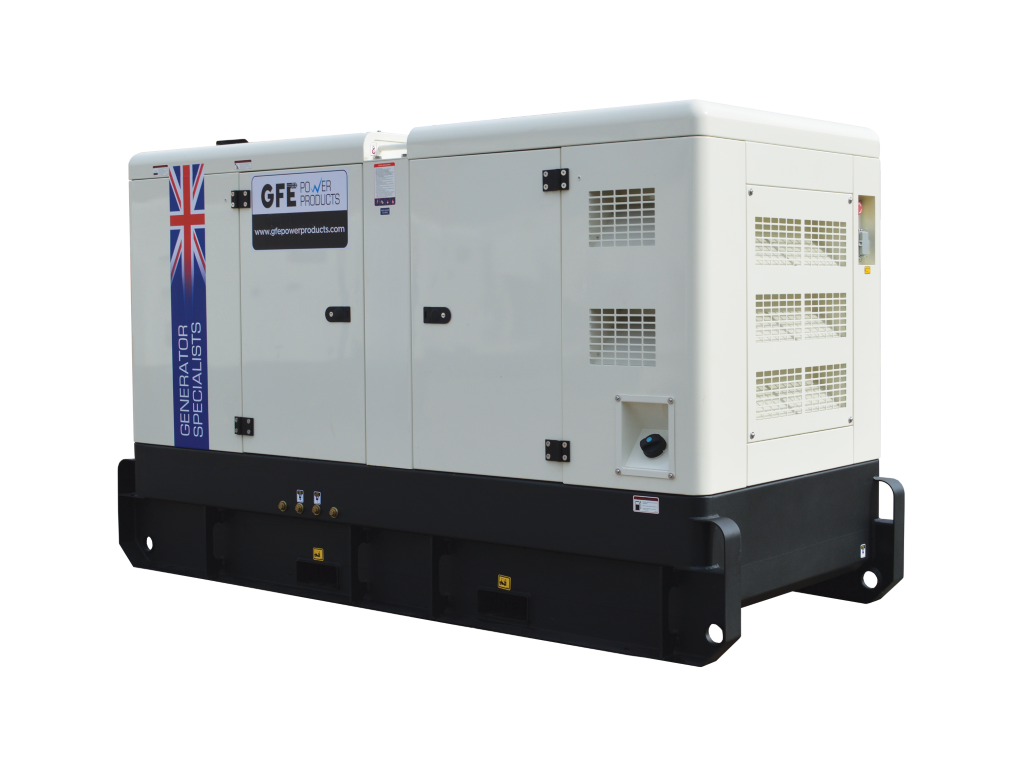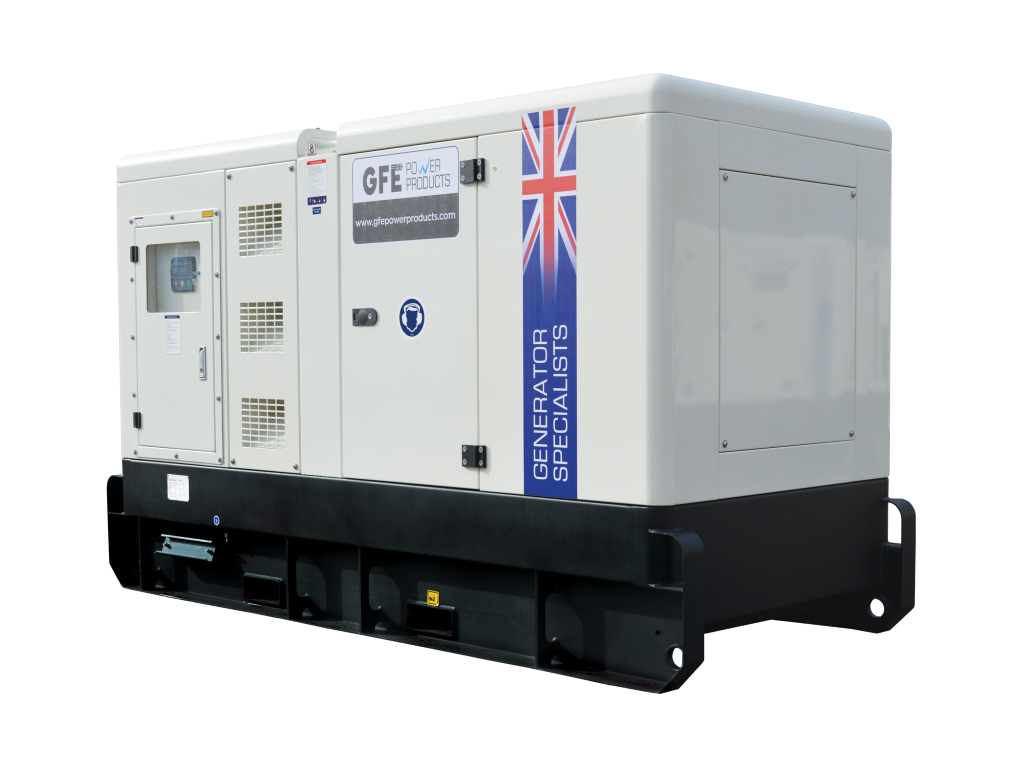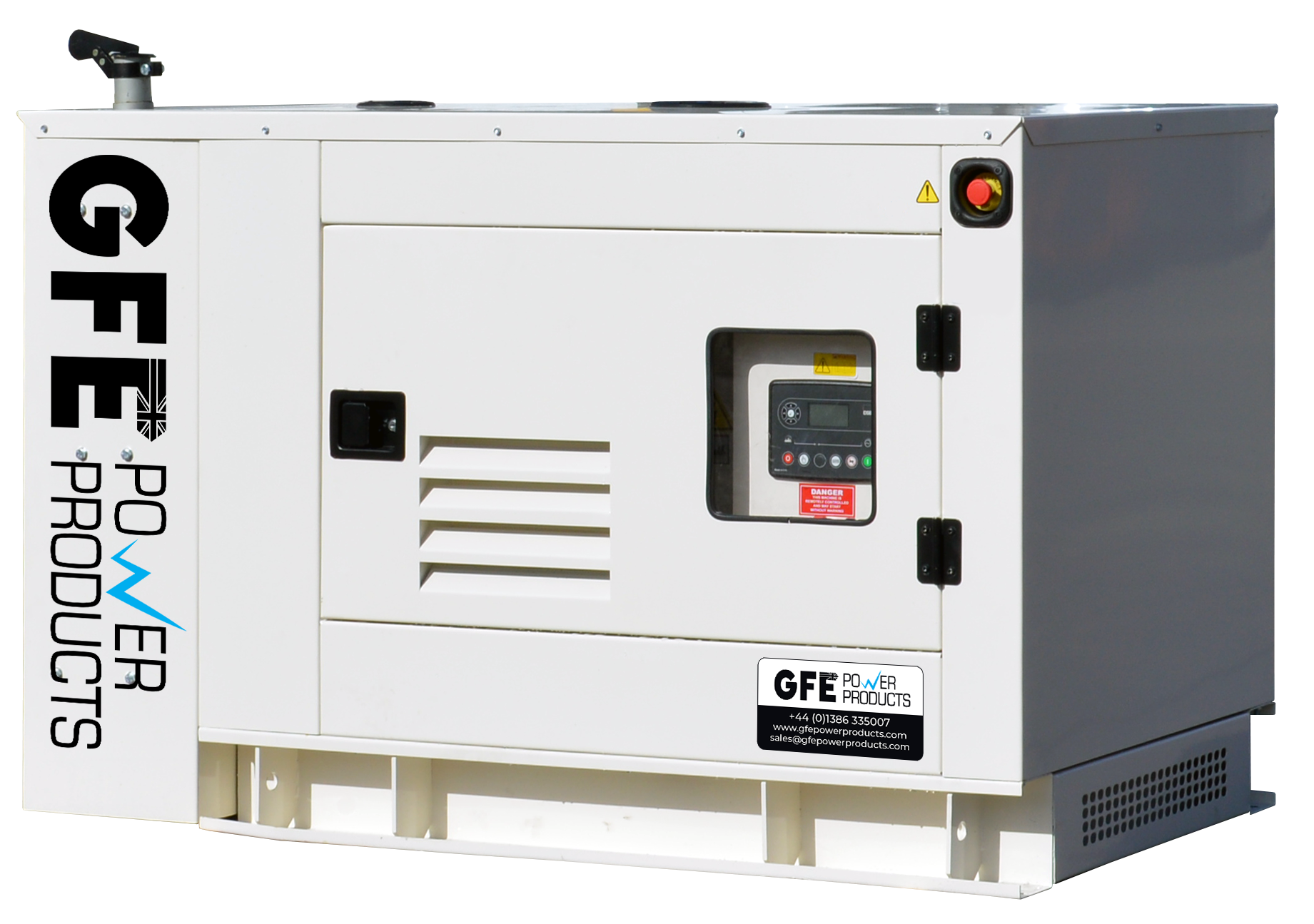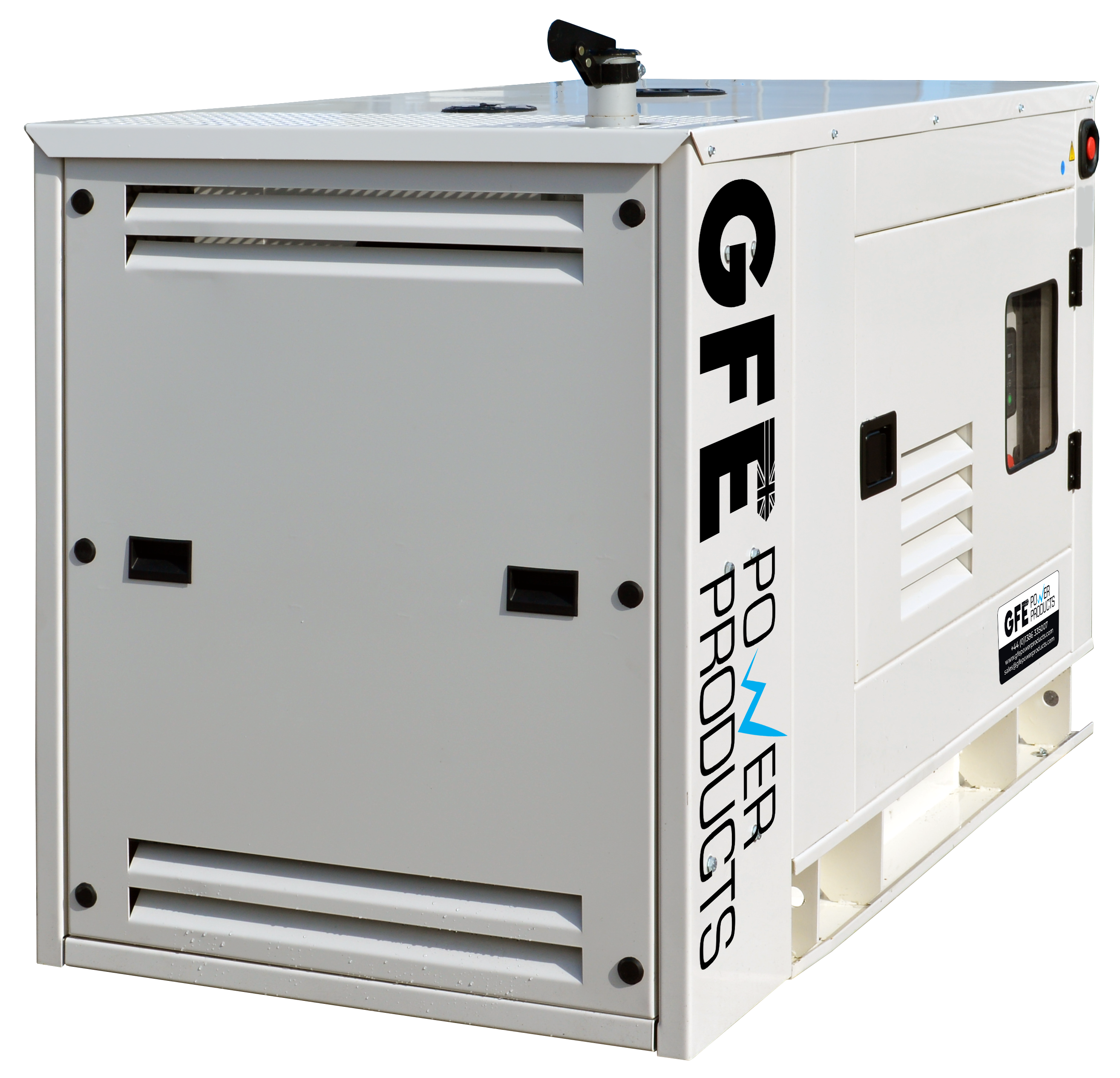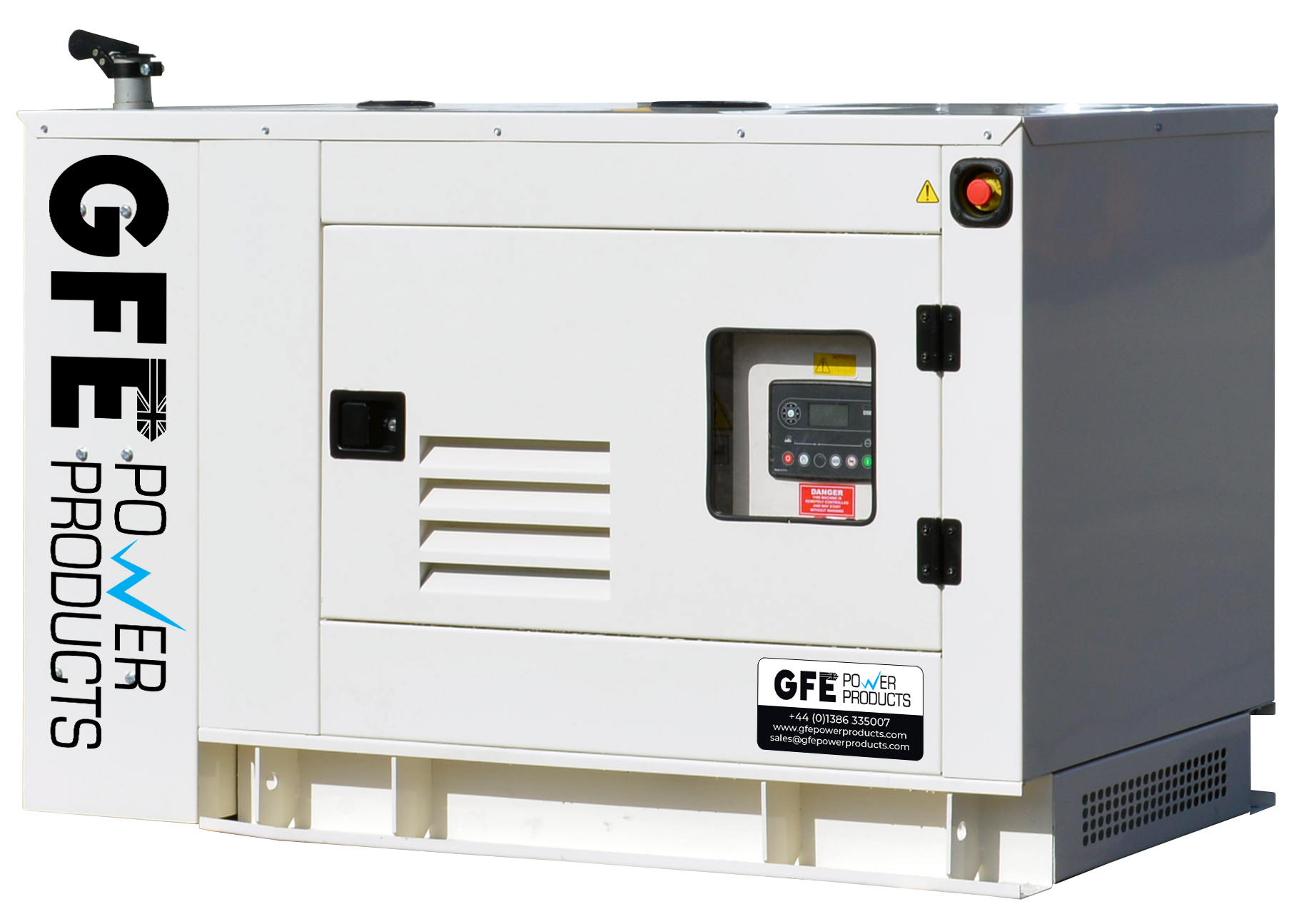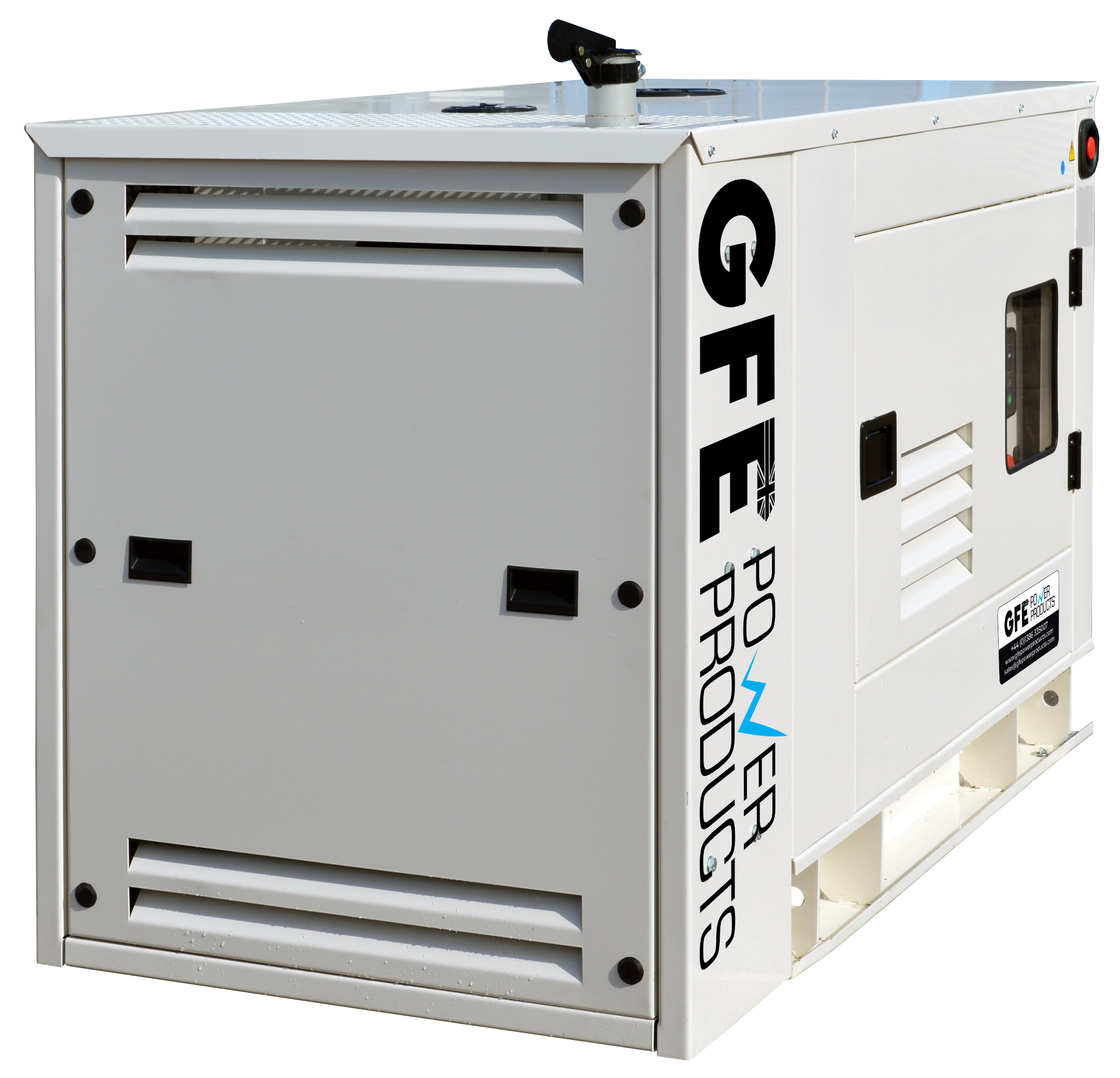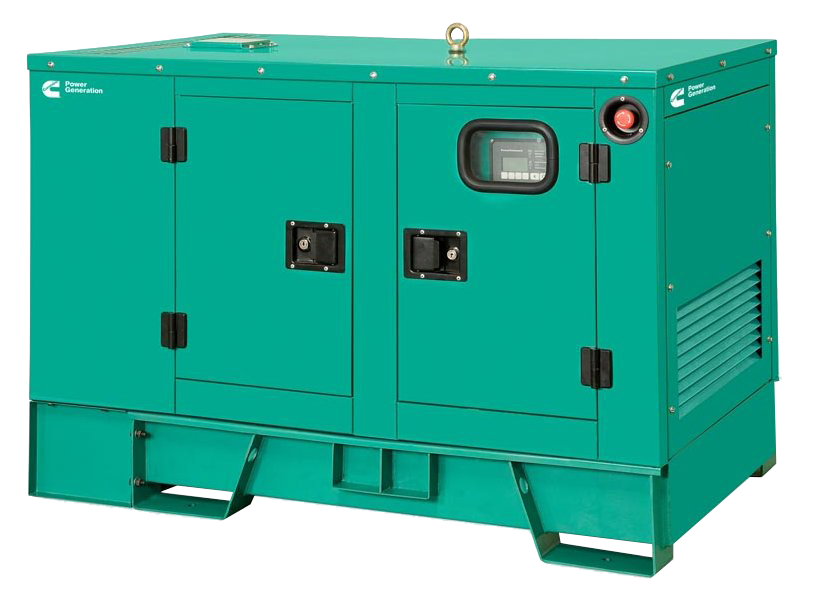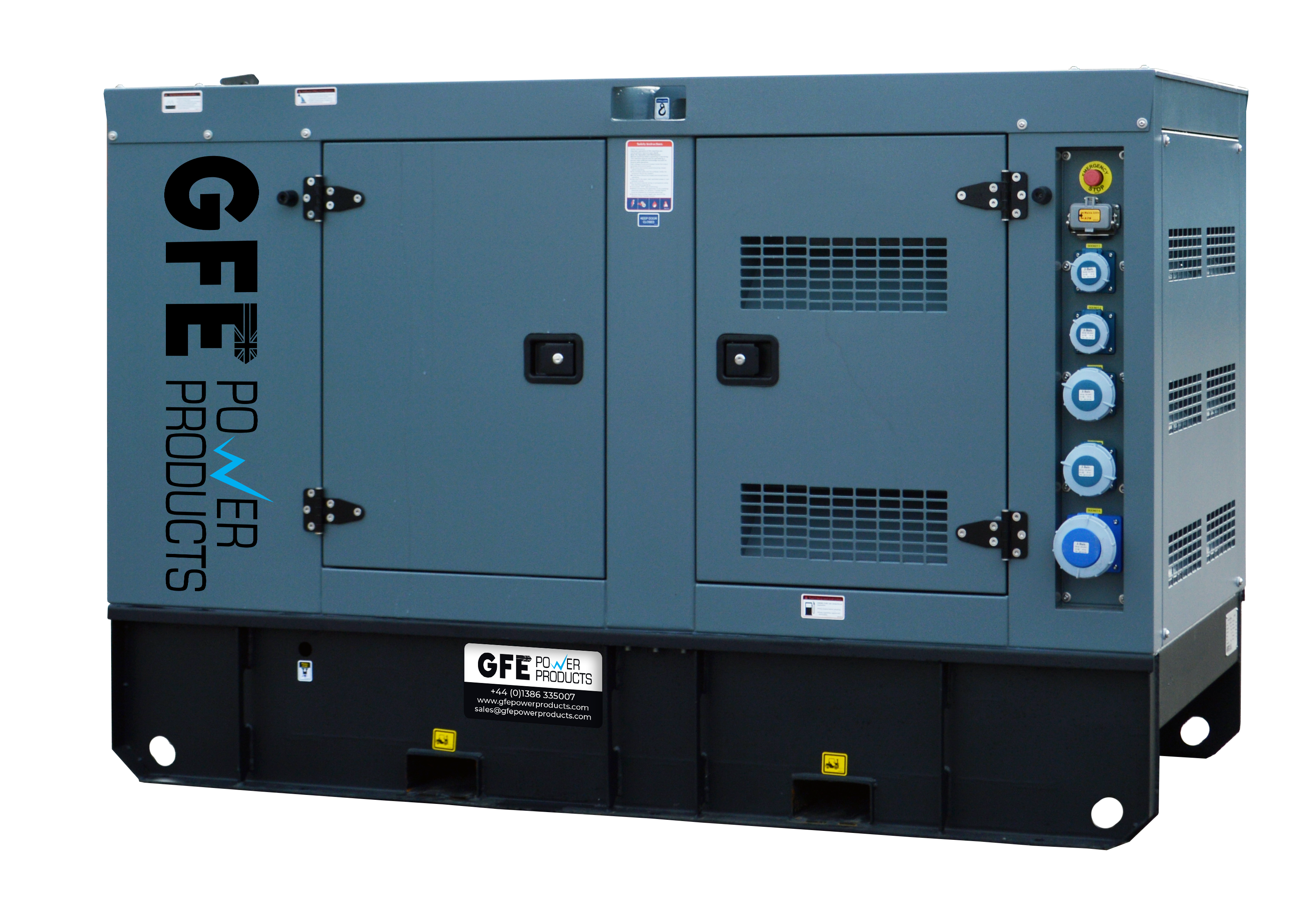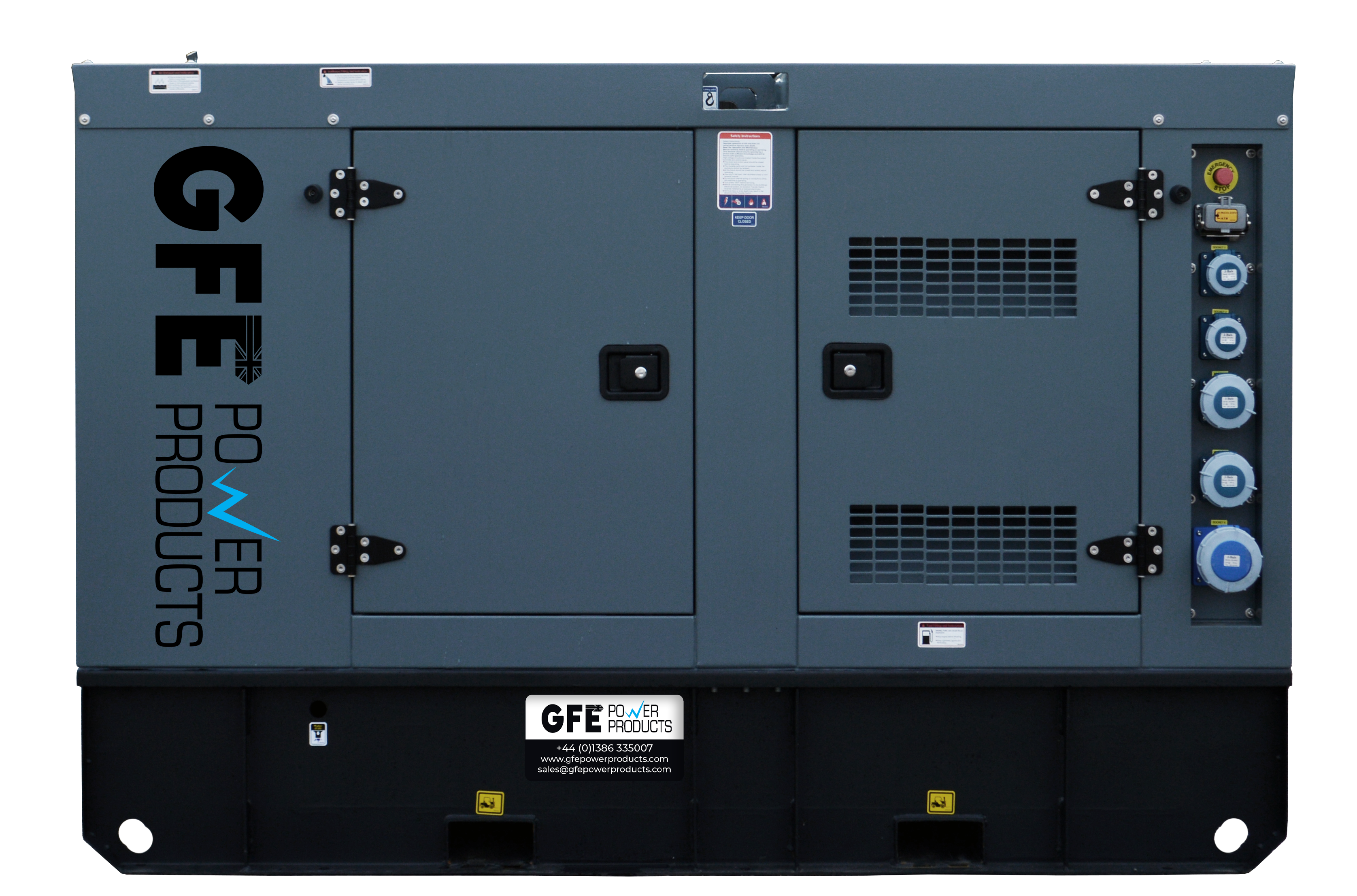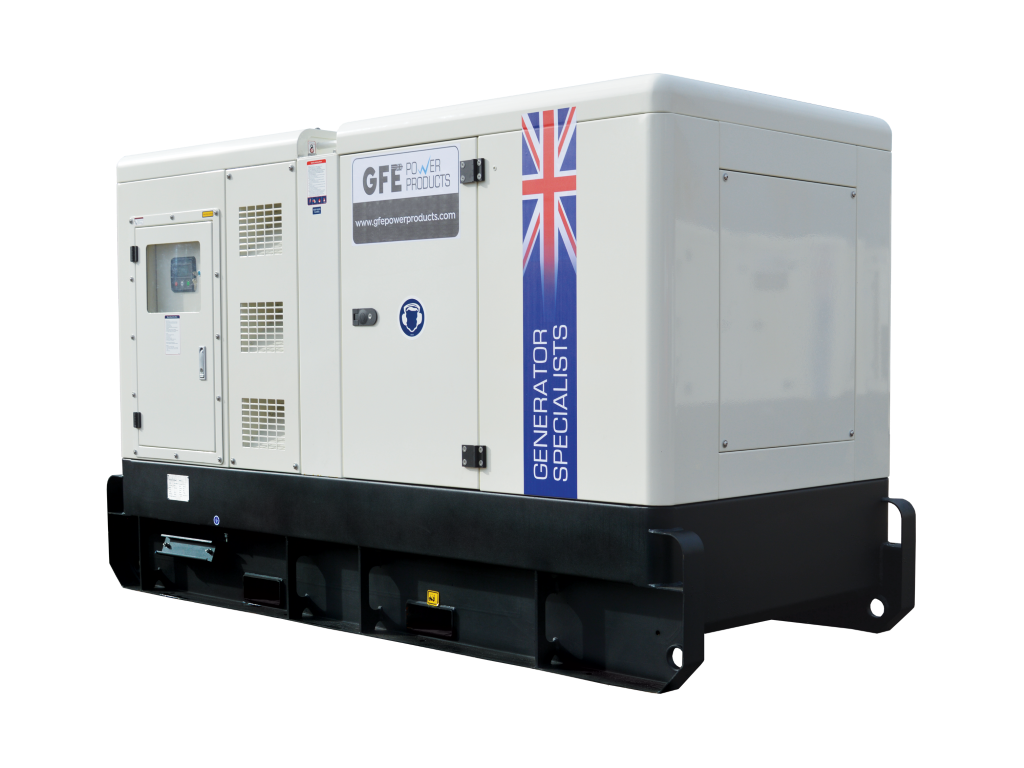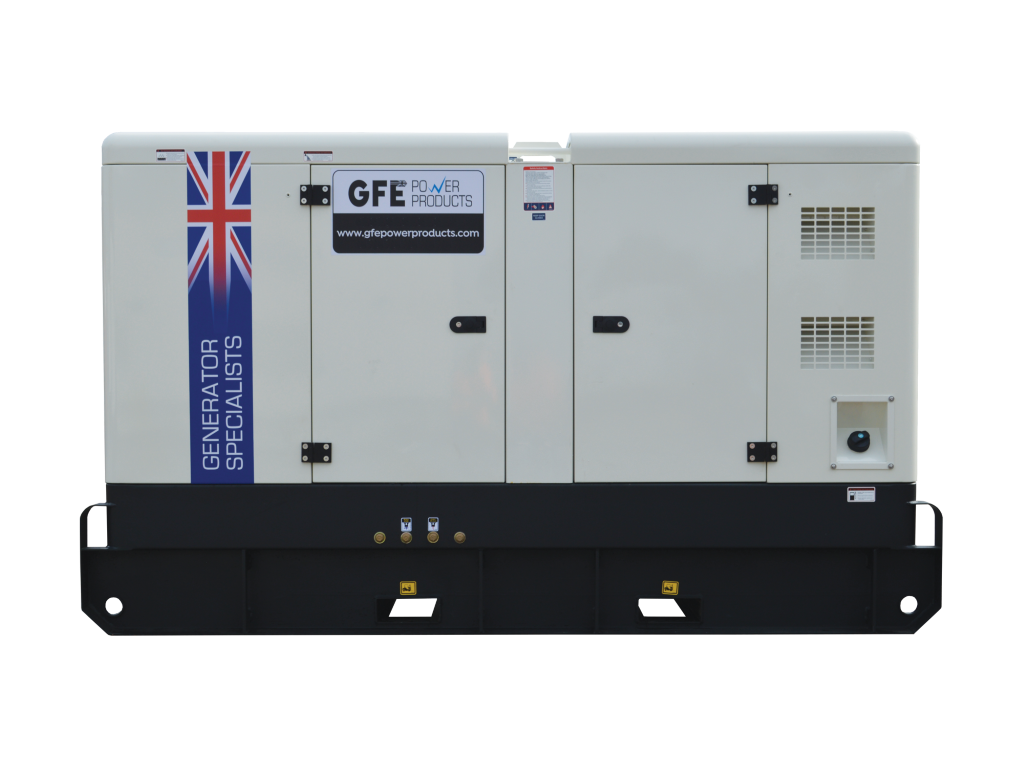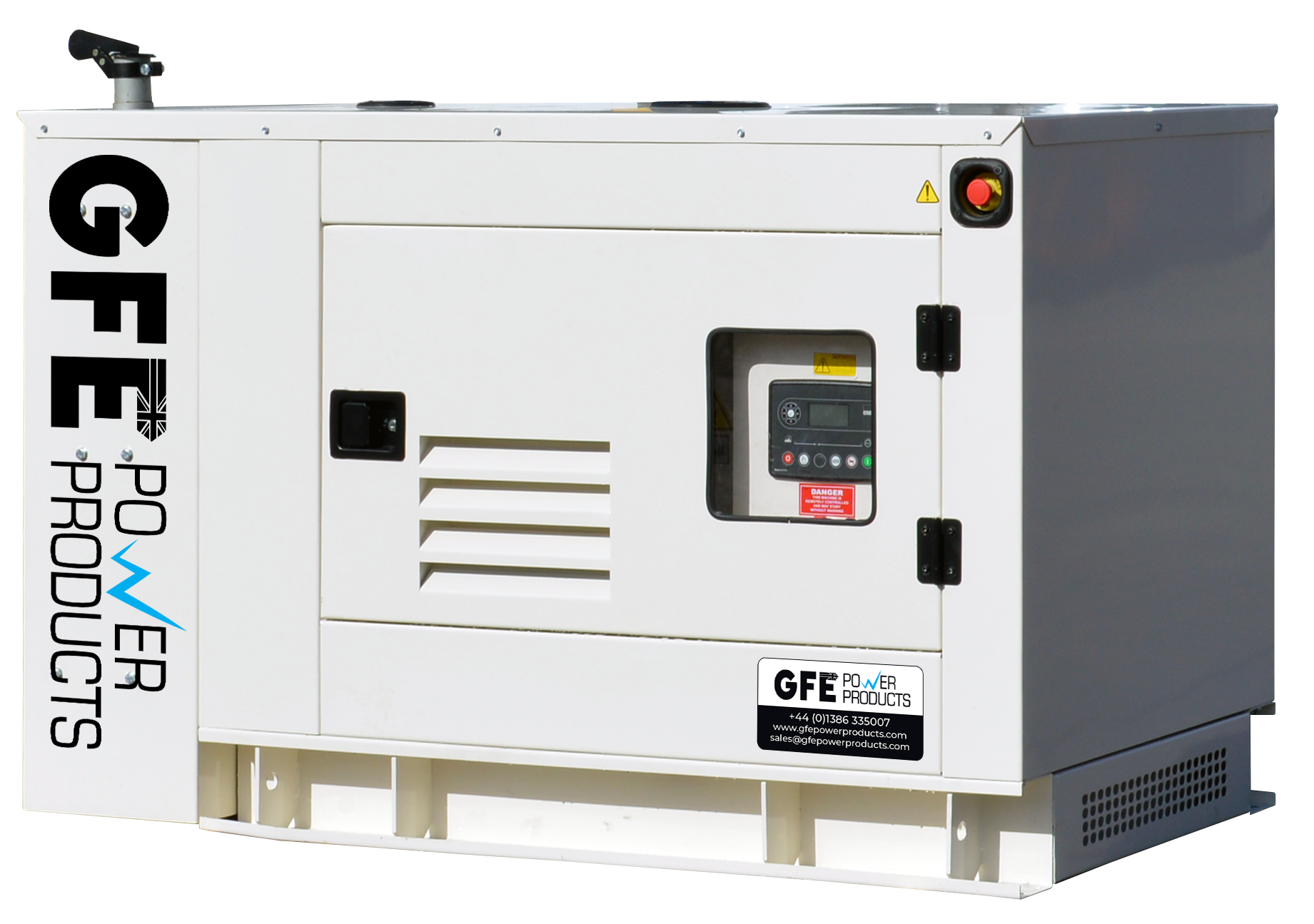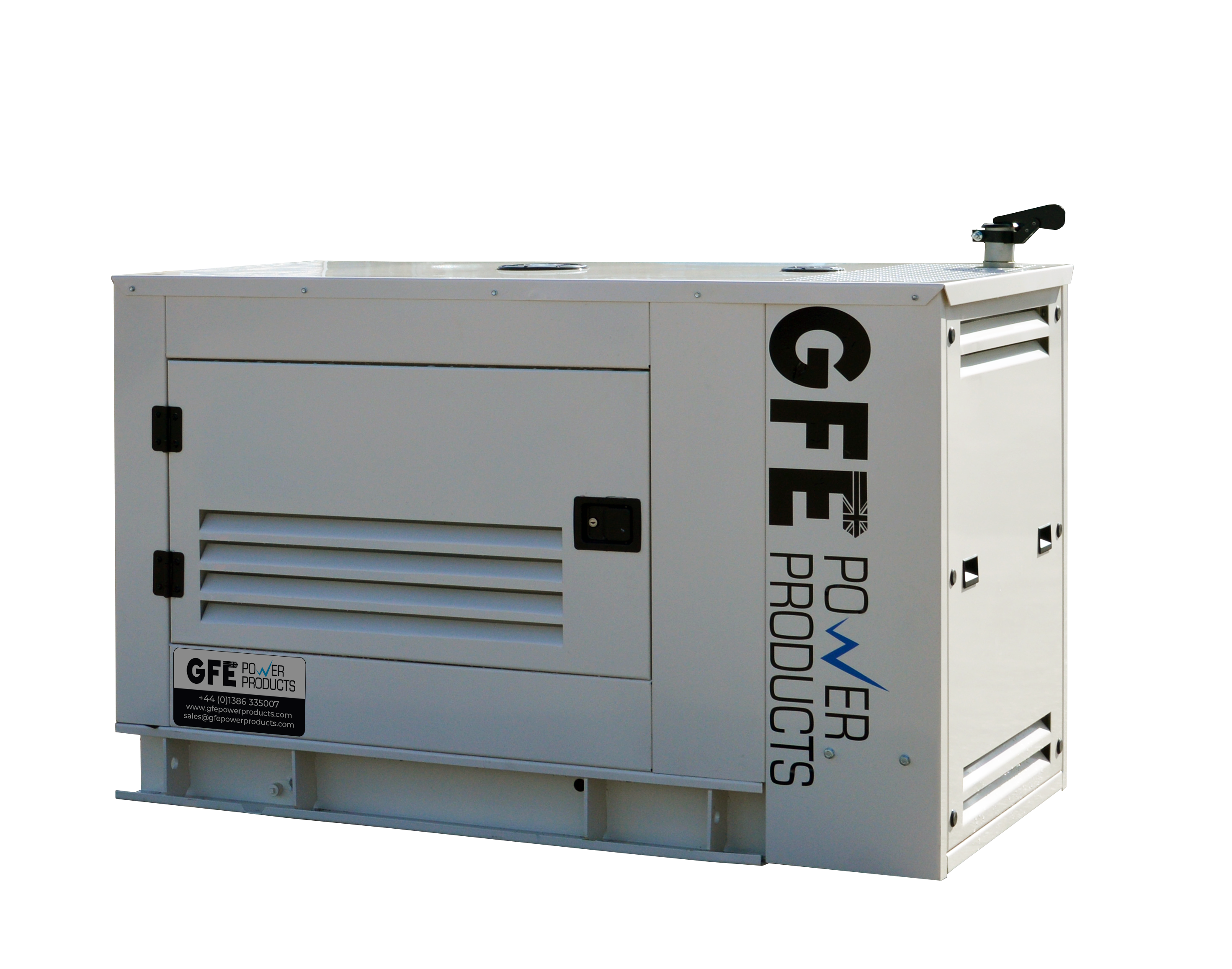Domestic Diesel Generators
Domestic diesel generators are essential power backup solutions designed for homes and small businesses, ensuring a continuous power supply during electrical outages.
These generators typically offer a power output ranging from 5 kW to 30 kW, making them suitable for running various household appliances, lighting systems, heating systems, and small electrical devices. The primary fuel source for these generators is diesel, which is known for its efficiency and widespread availability. Diesel engines, used in these generators, are renowned for their durability and long lifespan, which makes them a reliable choice for sustained power needs.
Take a look at our 6-66kVA generators, our best selling range of small domestic diesel generators:
6-66kVA Diesel Generators
Key Features of Domestic Diesel Generators
Domestic diesel generators offer essential features that make them a reliable choice for backup power. One standout feature is the automatic transfer switch (ATS), which automatically shifts the power supply from the main grid to the generator during an outage and back once power is restored. This seamless operation prevents disruptions to household or business activities.
These generators come in two main designs: portable models with wheels for easy mobility and stationary units that are permanently installed. Despite their compact size, many models include noise-dampening technology, ensuring quiet operation to minimise disturbances.
Advantages of Domestic Diesel Generators
Investing in domestic diesel generators comes with several advantages:
- Reliability: Diesel generators are built to perform during extended power outages, offering consistent energy without frequent refueling.
- Fuel Efficiency: Compared to gasoline generators, diesel models consume less fuel, reducing operating costs over time.
- Durability: With a robust design, diesel generators require less maintenance and are built to withstand prolonged use.
- High Performance: Diesel engines produce significant torque, making them ideal for handling heavy electrical loads and powering multiple devices simultaneously.
Disadvantages of Domestic Diesel Generators
While domestic diesel generators have many benefits, they come with some drawbacks:
- Higher Initial Cost: Diesel generators often have a steeper upfront price compared to gasoline or propane options.
- Environmental Impact: Diesel engines emit more pollutants than some alternatives, though modern technology is addressing this issue.
- Noise Levels: Even with noise-dampening features, diesel generators can still be louder than other types.
Despite these considerations, diesel generators remain a top choice for their reliability and efficiency.
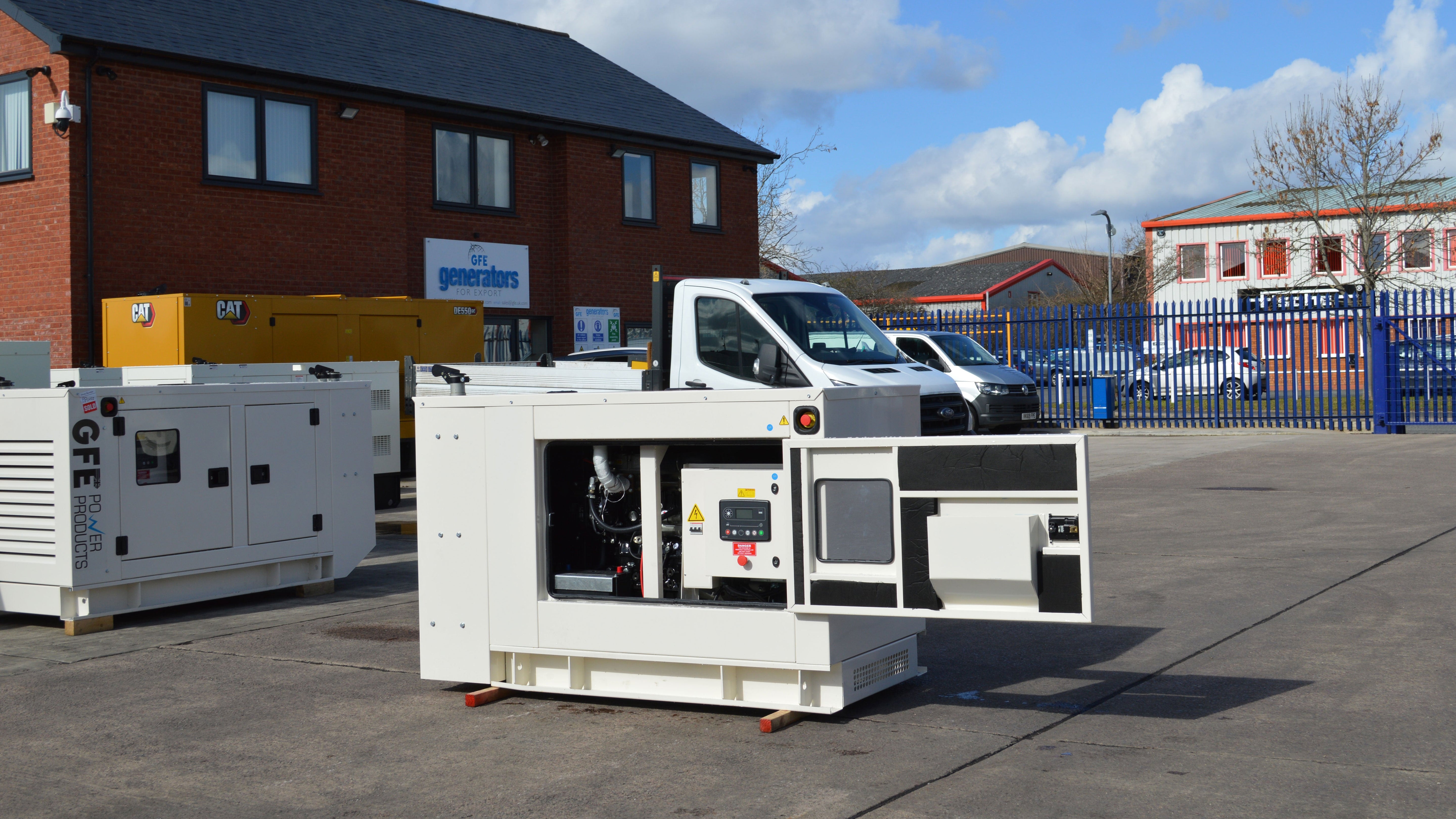
Common Uses of Domestic Diesel Generators
Domestic diesel generators serve various applications, including:
Residential Use: Ensuring uninterrupted power for essential appliances like refrigerators, lighting, and heating systems during outages.
Small Businesses: Supporting critical operations in offices, retail stores, and commercial setups during power failures.
Outdoor Activities: Portable models are perfect for camping trips, outdoor events, and remote locations without grid access.
Maintenance Tips for Domestic Diesel Generators
To keep your domestic diesel generator running efficiently, regular maintenance is vital. Follow these best practices:
- Conduct Routine Checks: Monitor oil levels, fuel quality, and battery conditions regularly.
- Schedule Service Intervals: Adhere to the manufacturer’s recommendations for oil changes, filter replacements, and inspections.
- Store Diesel Properly: Prevent fuel contamination by storing and handling diesel fuel correctly.
- Test the Generator: Periodic test runs ensure readiness and identify potential issues before they become critical.
By prioritising maintenance, you can extend the lifespan and ensure optimal performance of your generator.
Why Choose Domestic Diesel Generators?
Domestic diesel generators are a dependable and efficient solution for backup power in homes and small businesses. Their ability to deliver sustained energy during outages, combined with fuel efficiency and durability, makes them a valuable investment. While initial costs and environmental factors are considerations, the long-term benefits outweigh these concerns for those who prioritise reliable power solutions.
Featured Domestic Generator
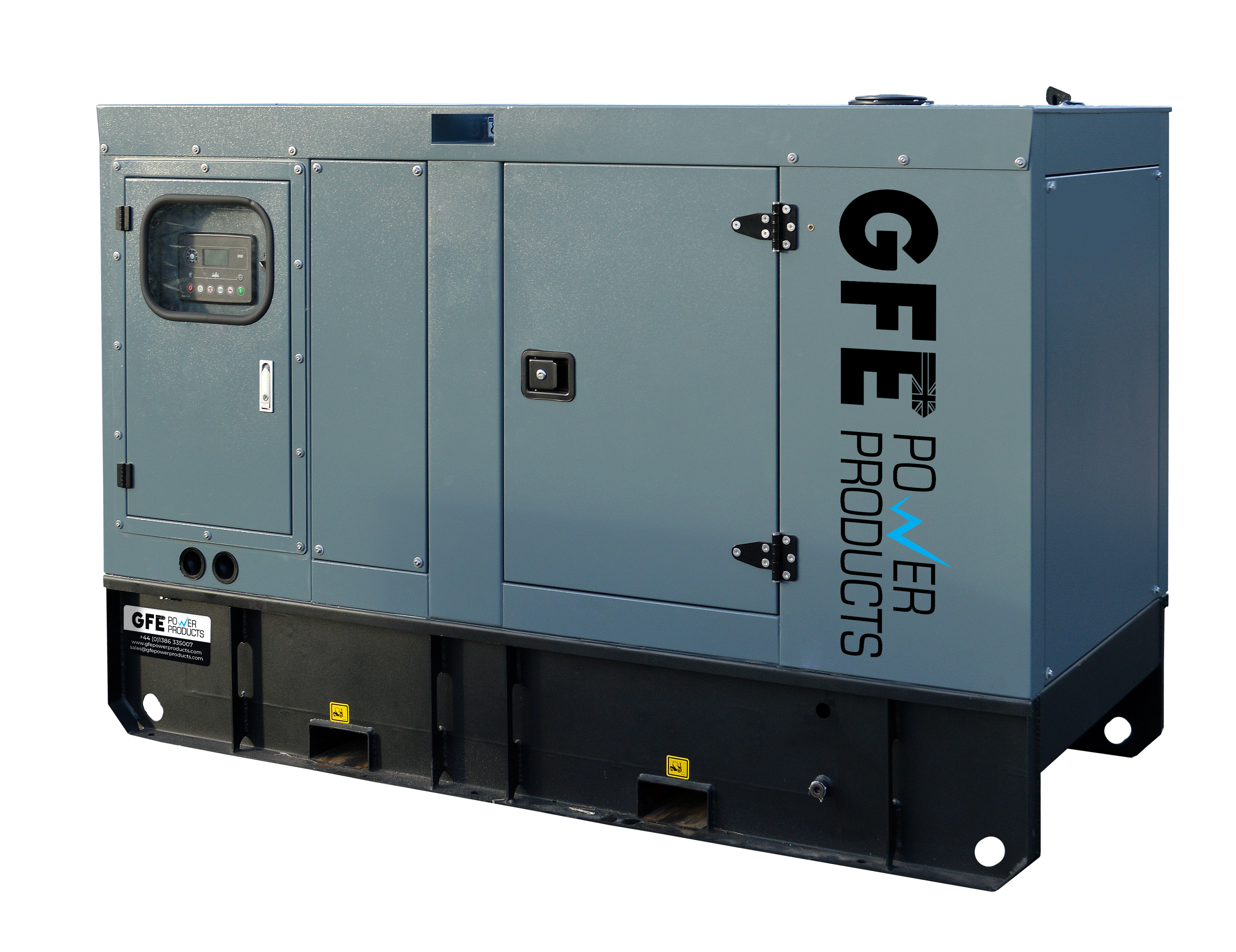
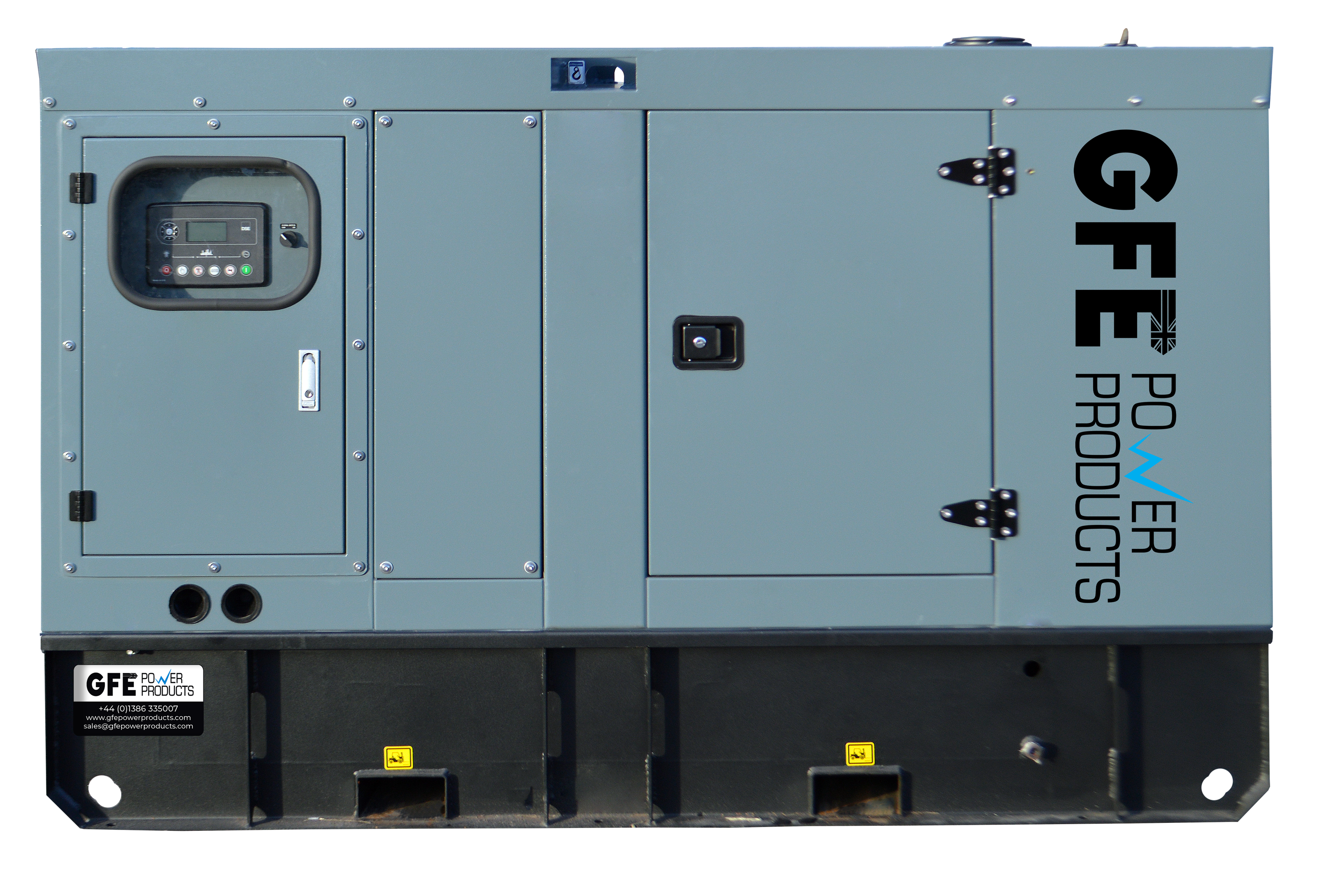
Introducing GFE Power Products' signature series of Cummins-powered diesel generators, integrating the prestigious Cummins engine and Stamford alternator. Engineered for resilience and priced affordably, our GFE Cummins Powered generators range from 20kVA to 650kVA.
| Model reference | GFE22CSC (Canopied) |
| Engine | Cummins 4B3.9-G11 |
| Alternator | Stamford S0L2-G1 |
| Control panel | Deepsea DSE6120 |
| Frequency | 50Hz |
| Engine speed | 1500rpm |
| Phase / Poles | 3-Phase / 4-Pole |
Ratings
| kWe | kVA | |
| Prime Power (PRP) | 16 | 20 |
|
Standby Power (ERP) |
17.6 | 22 |
|
Voltage |
400V |
| Rated current | 29 Amps |
| Fuel consumption | @100% load L/h 5.7 |
|
Noise Level |
72 dB(A) @ 7m |
Overall dimensions
| Frame type | Dimensions | Weight | Base tank @100% load |
| (L x W x H) mm | kg | Litres | |
| Canopied | 2150 x 985 x 1420 | 80 | |
| Open |
Datasheets
| Generator: | Engine: | Alternator: |
| 20kVA GFE22CSC | Cummins 4B3.9-G11 | Stamford S0L2-G1 |
 |
 |
 |
Need help?
Domestic Generators Frequently Asked Questions
A domestic diesel generator is a backup power device used in homes to provide electricity during outages or in areas without reliable grid access. It runs on diesel fuel, which powers an internal combustion engine to generate electrical energy. These generators are often used for their reliability, efficiency, and ability to supply power for extended periods, making them suitable for powering household appliances, lighting, and essential systems during power interruptions.
A domestic diesel generator works by converting diesel fuel into electrical energy through an internal combustion process. When the generator is started, diesel fuel is injected into the engine's combustion chamber, where it is ignited by the heat of compressed air. This combustion creates a high-pressure force that moves the engine's pistons, driving a crankshaft. The crankshaft, in turn, rotates the generator's rotor within a magnetic field, inducing an electrical current. This current is then conditioned and distributed to power household appliances and systems. The generator typically includes a fuel tank, engine, alternator, and control systems to manage its operation and output.
Domestic diesel generators and silent diesel generators are not always identical. Domestic diesel generators are intended for household use, supplying backup power during power outages. In contrast, silent diesel generators are designed to operate with minimal noise, making them ideal for noise-sensitive settings. While a domestic diesel generator can also be a silent type, not all domestic generators are equipped with silent features.
A domestic diesel generator can be used as a primary power source, though it is not typically designed for continuous, long-term use as the main power supply. These generators are usually intended for backup power during outages or in areas with unreliable grid access. Using a diesel generator as a primary power source would require careful maintenance, adequate fuel supply, and consideration of noise and emissions. Additionally, it may not be as cost-effective or efficient as other primary power solutions, such as grid electricity or renewable energy systems.
GFE Power Products have a fantastic range of domestic diesel generators. If you are unsure which of our silent generators would work best for you, contact the GFE Power Products team.



